Week Two
This week was spent traveling around Dhaka, visiting a couple of our partner sites and the court to conduct interviews with those involved in human trafficking cases. My job this summer is to research and conduct interviews then write a report. The question is if the trafficking laws here are bringing justice to the victims and survivors of human trafficking. It is an interesting question to consider. One thing I realized when looking over my list of interview questions is that to determine if the law was bringing justice to victims and survivors, I had to ask: What does justice mean to you? I thought I knew the answer I would hear, but I was wrong.
*One thing to note, in the context of my work in Bangladesh, victims are those who have been recently rescued or escaped and are still in the process of getting back on their feet, survivors are those who are more established and moving into the future.*
Sunday:
I was picked up by our company driver (this is a normal thing here in Dhaka because of the traffic). We drove for about 30 minutes all the while he pointed out different sites to me; the parliament building, the Prime Ministers palace, and the Martyrs Monument. We then stopped to pick up my boss, the prosecution manager, and we drove for about another 30-45 minutes to our partner site.
Once we arrived at the partner site, someone opened the big metal gates, and we drove into the courtyard. We were shown into a meeting room where I was introduced to multiple members of the partner team. Not long after arrival, a sweet gentleman brought three small plates of food; plates of peeled and sliced cucumbers (seasoned lightly with oil and salt), guava, and apples. I was surprised at all the food, especially since it was Ramadan and most people are currently fasting. My boss then leaned over to me and explained to me that the food was all for me and that it is customary for them to provide guests with food, even if they are fasting. Assuming I had time to snack on the food, I would take a piece here and there while listening to the conversations happening. However, a little while later, my boss leaned over to me and told me to eat because they were bringing my tea. Sure enough a few minutes later, the same gentleman from before brought me a cup of hot tea. During this time my team was speaking with the Partner team in Bangla, so I wasn’t really aware of the content of the conversation, until one of my coworkers leaned over and told me that the partners currently had a victim in the shelter if we wanted to speak with her (more on that later). After the interviews, we got back in the van, and the same drive that took us just about one hour in the morning took us over two hours in the afternoon. 
Monday:
In much the same manner as the day before, we started at my place, picked up my supervisor, and then picked up another girl from work to head to our next partner site. This drive was slightly longer than the one on Sunday, and when we stopped, I was surprised to hear we had arrived. We had stopped off the highway on a frontage road of sorts. There were many shops around, and it was a bustling street, but I didn’t see anything that looked like what I had pictured in my head as being our destination.
Ahead of me, my supervisor led the way winding around through side streets, past a ceiling fan factory, into a gated garage area, then finally up a tiny elevator. Now we had arrived. We were greeted by partner staff as we stepped off the elevator. As we went to enter into the office, there were many pairs of shoes lined up outside of the doors, and everyone slipped their shoes off (this is expected at most places) then entered the office.
We were shown to a meeting room where we sat with several partner staff to discuss the work of their organization. Again, as the day before, a kind gentleman brought three plates of food; bananas, cookies, and guava. Later, tea was served (I think I may start implementing afternoon tea all the time). This partner organization works mostly with victims and survivors to receive lost wages from “recruiters” (businesses) who have recruited workers who then end up being trafficked, though they also do work on the court cases and have both a men and women’s shelter (which we toured) as well as a reintegration program. The way the process works is that businesses who want to recruit workers (overseas workers are one of the highest exports from Bangladesh) register with BMET (Bureau of Manpower Empowerment and Training), then if the worker ends up having any complaint about the work or the compensation, they can go through BMET to get their money. However, this doesn't work if it is a private person recruiting and promising work (which a lot of times it is), or if a broker is working as a middle-person coordinating with the traffickers.
After the interviews, we again drove for a few hours, dropping everyone off and arriving home about two and a half hours later. 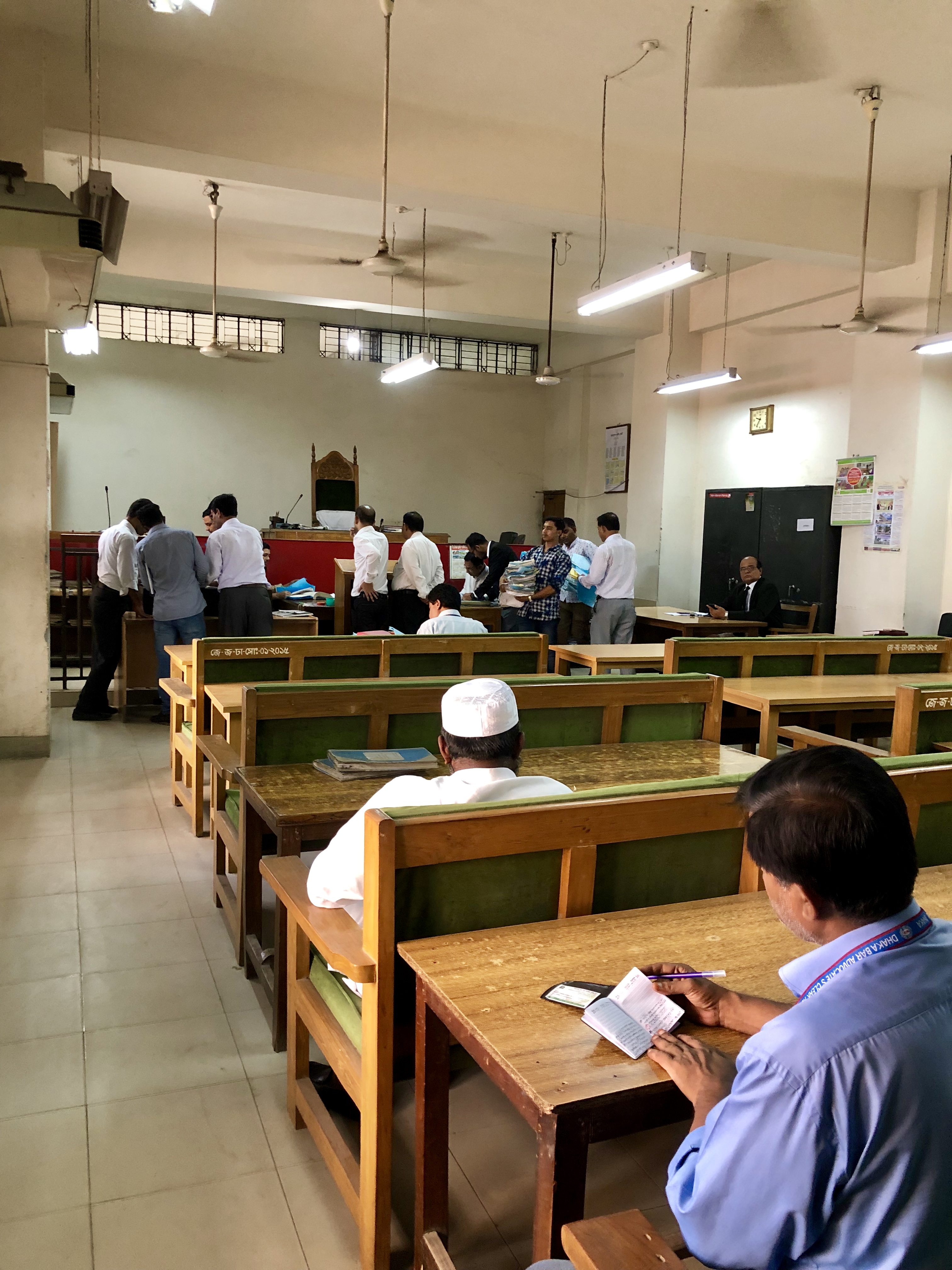
Tuesday:
Tuesday’s commute was much the same as the previous days, though our destination ended in a bustling area of old Dhaka, at the courthouse. After waiting a few minutes for my coworker to arrive, we walked to the front of the courthouse to meet with an attorney (referred to as Advocates here) for one of our partner organizations who would help introduce use to prosecutors and judges.
Outside of the courthouse, people packed the courtyard waiting for the court sessions to start. A few buses lined one side of the parking lot (I was informed these were the buses they brought the prisoners on for their court dates). Approaching the steps to enter the court, all you can see is a sea of people, shoulder to shoulder walking up the staircase, or perhaps waiting for the extensive line at the lift. Trying to stay with the other ladies was a challenge because there were so many people trying to get to their destinations, and you just had to keep moving. 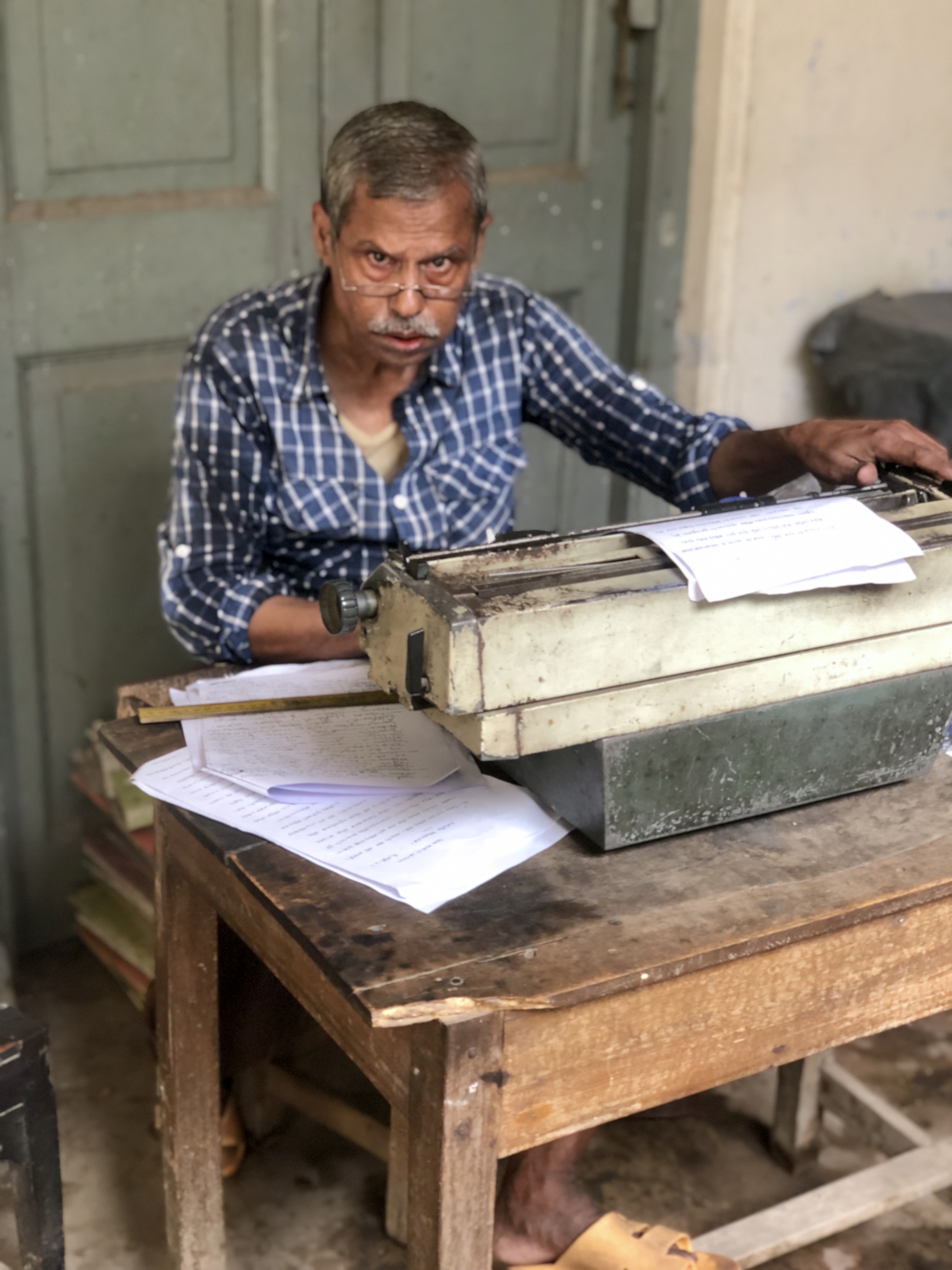
After a few minutes of winding up several sets of stairs, we approached a courtroom, one of the locations for the tribunals for crimes against women and children (there is not yet a separate tribunal for human trafficking, though we hope the government will establish one soon). The Advocate approached the public prosecutor, explained who I was, what we were doing, and asked if she would be will to answer questions. She quickly agreed. Afterward, as we were leaving, she requested to take a picture with me, so we did. Then as we were leaving the courtroom, after finding out who I was and what I was doing, another public prosecutor also asked if she could take a picture with me as well, so we obliged. We continued this method for a few hours; moving to different courtrooms, approaching various public prosecutors who have dealt with these cases, asking them questions, and taking pictures with most of them. 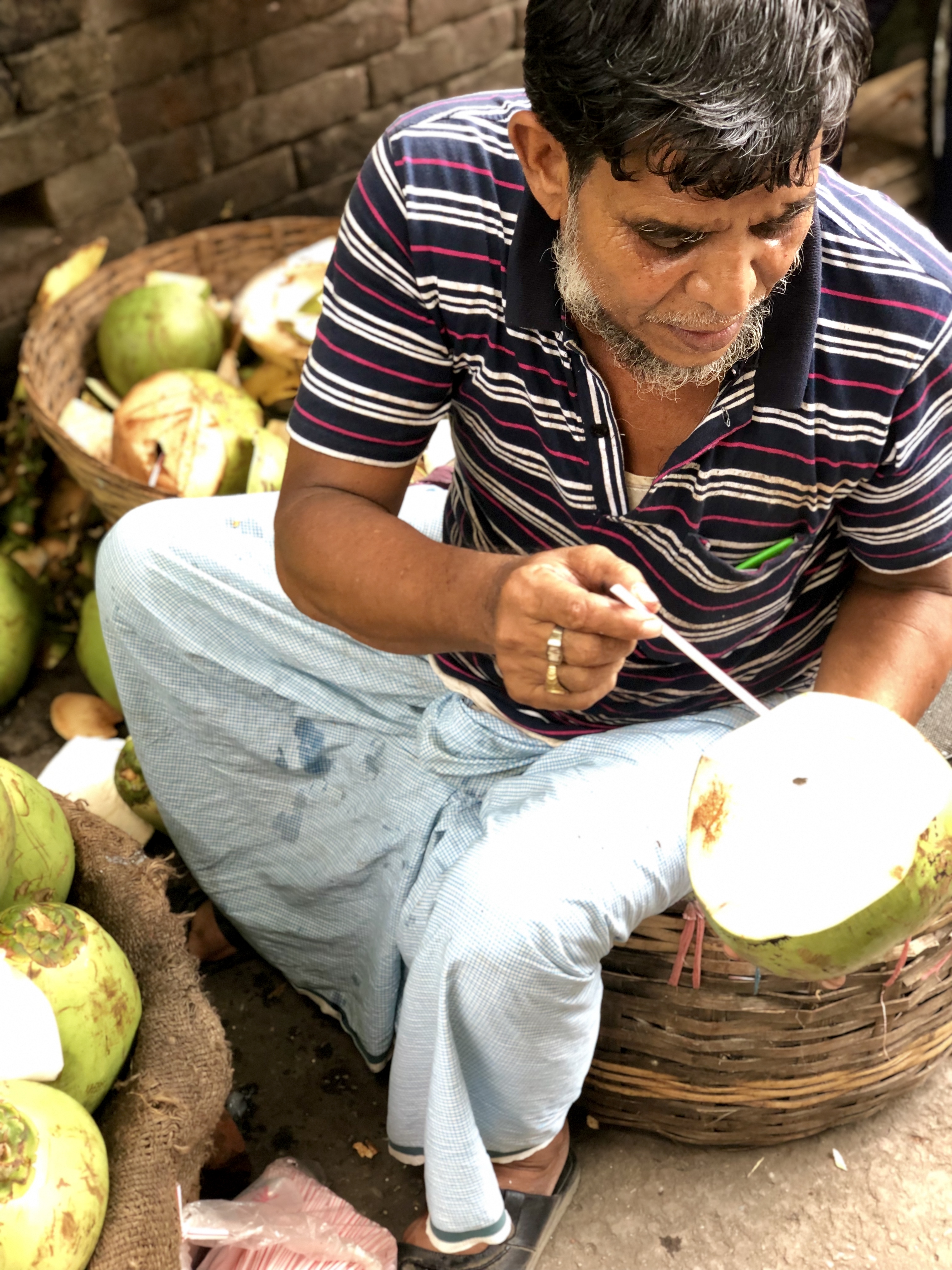
For a break in the middle of the day, my coworker, Rezwanna, took me back to the courtyard outside of the courthouse where a man was selling coconuts. First, he opened the coconut for us to drink the water, then when we were done with that, he opened the coconut and scraped the meat for use to eat. It was a very refreshing midday snack!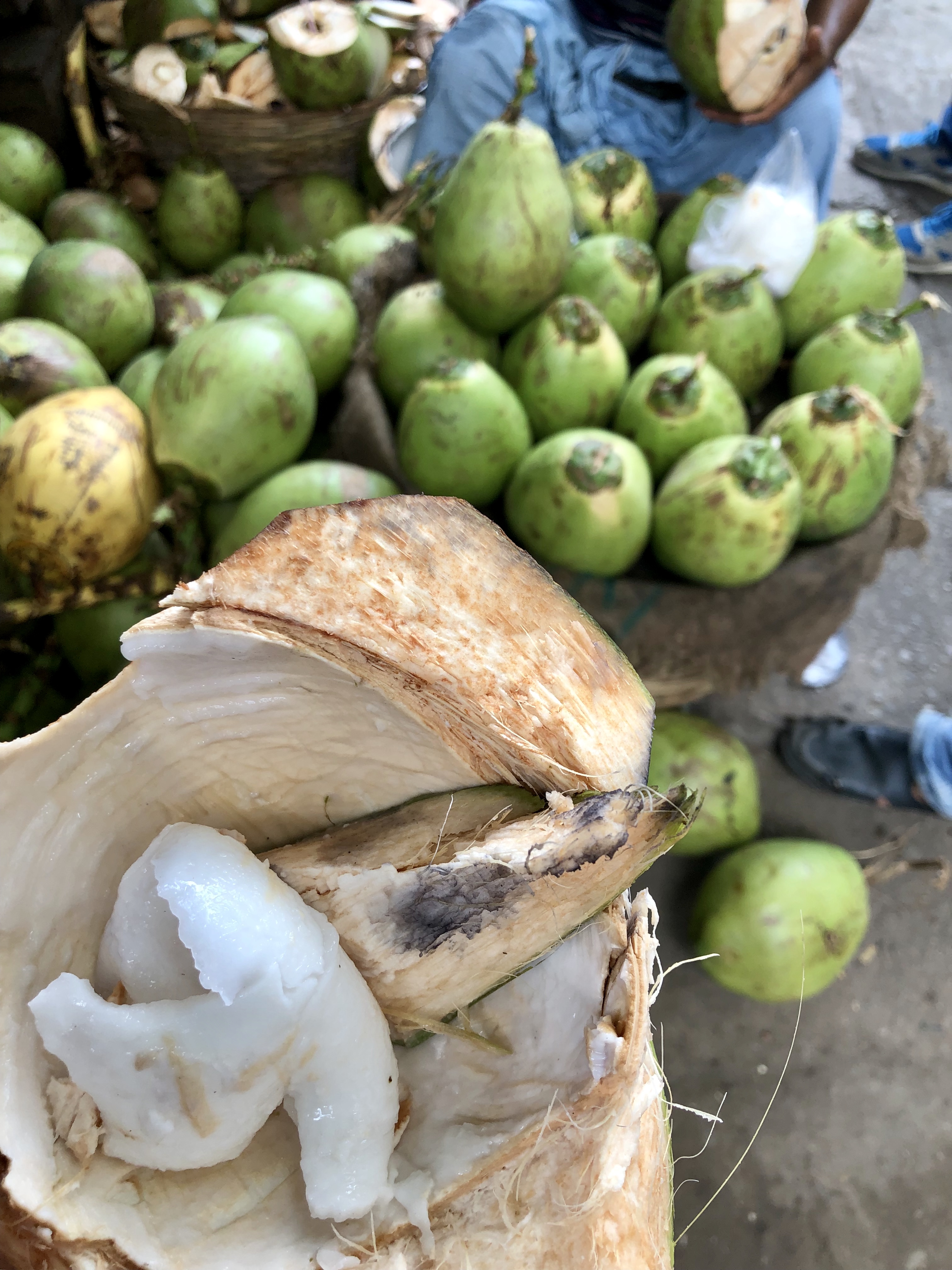
At the end of the 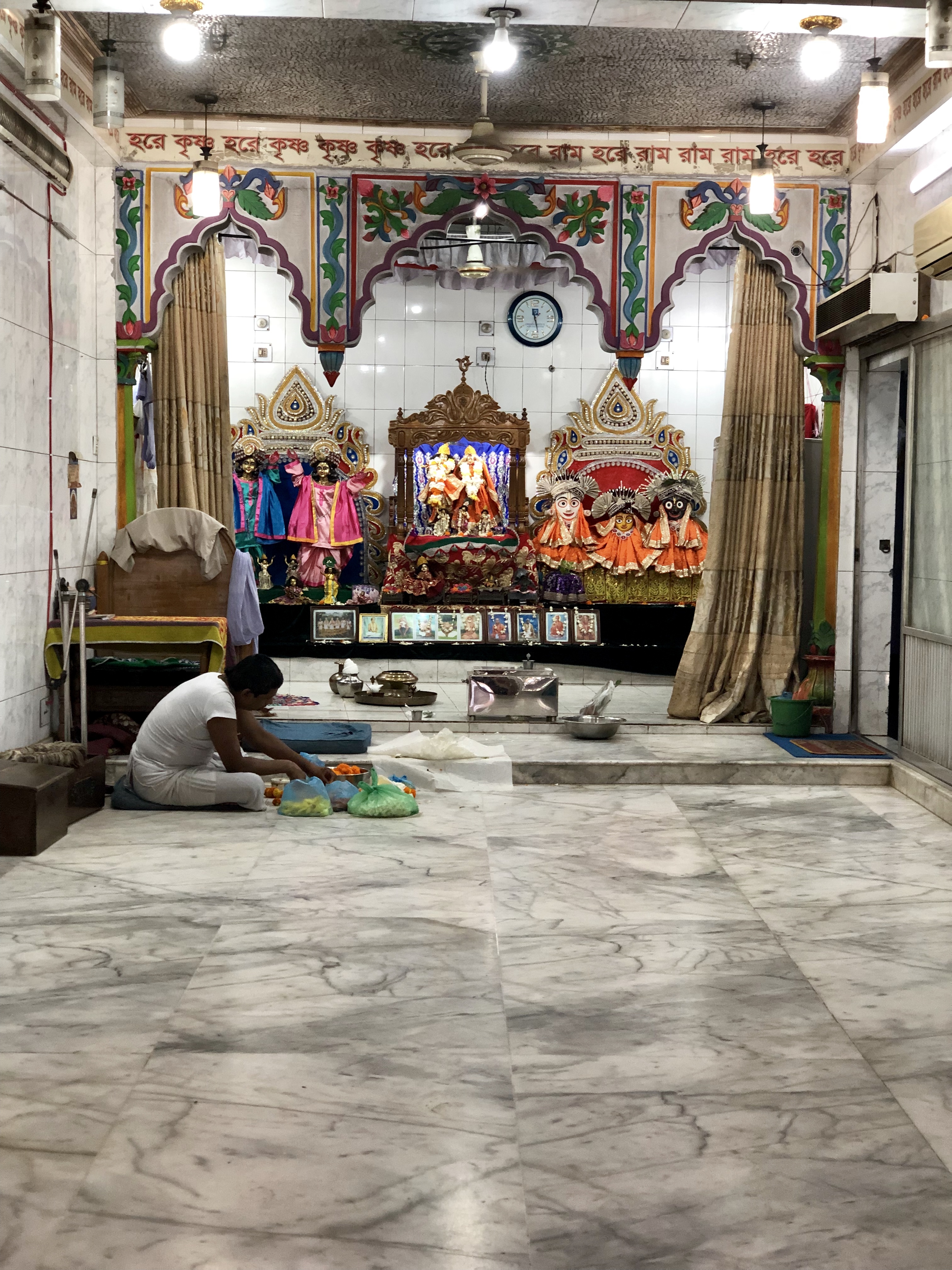
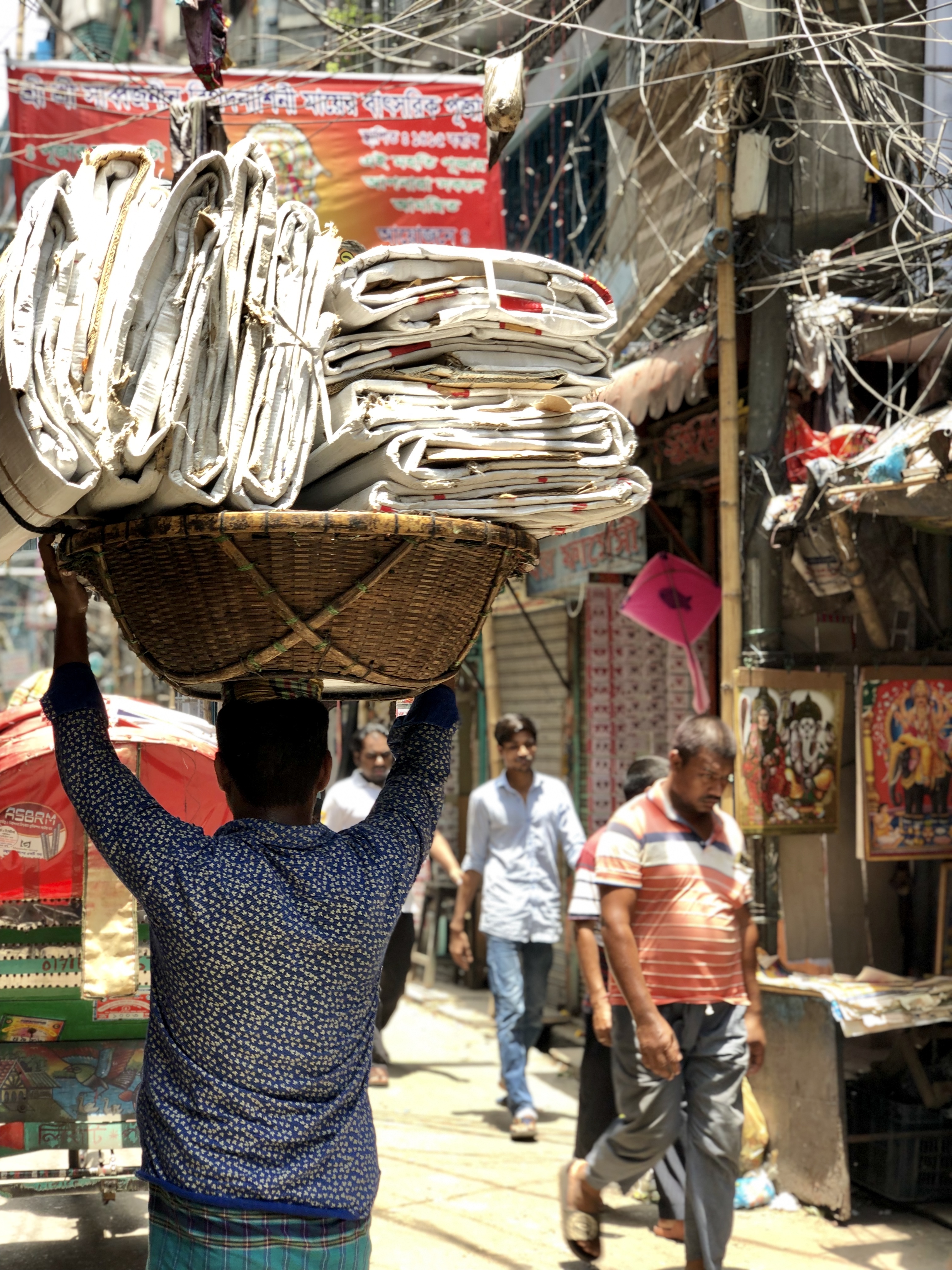
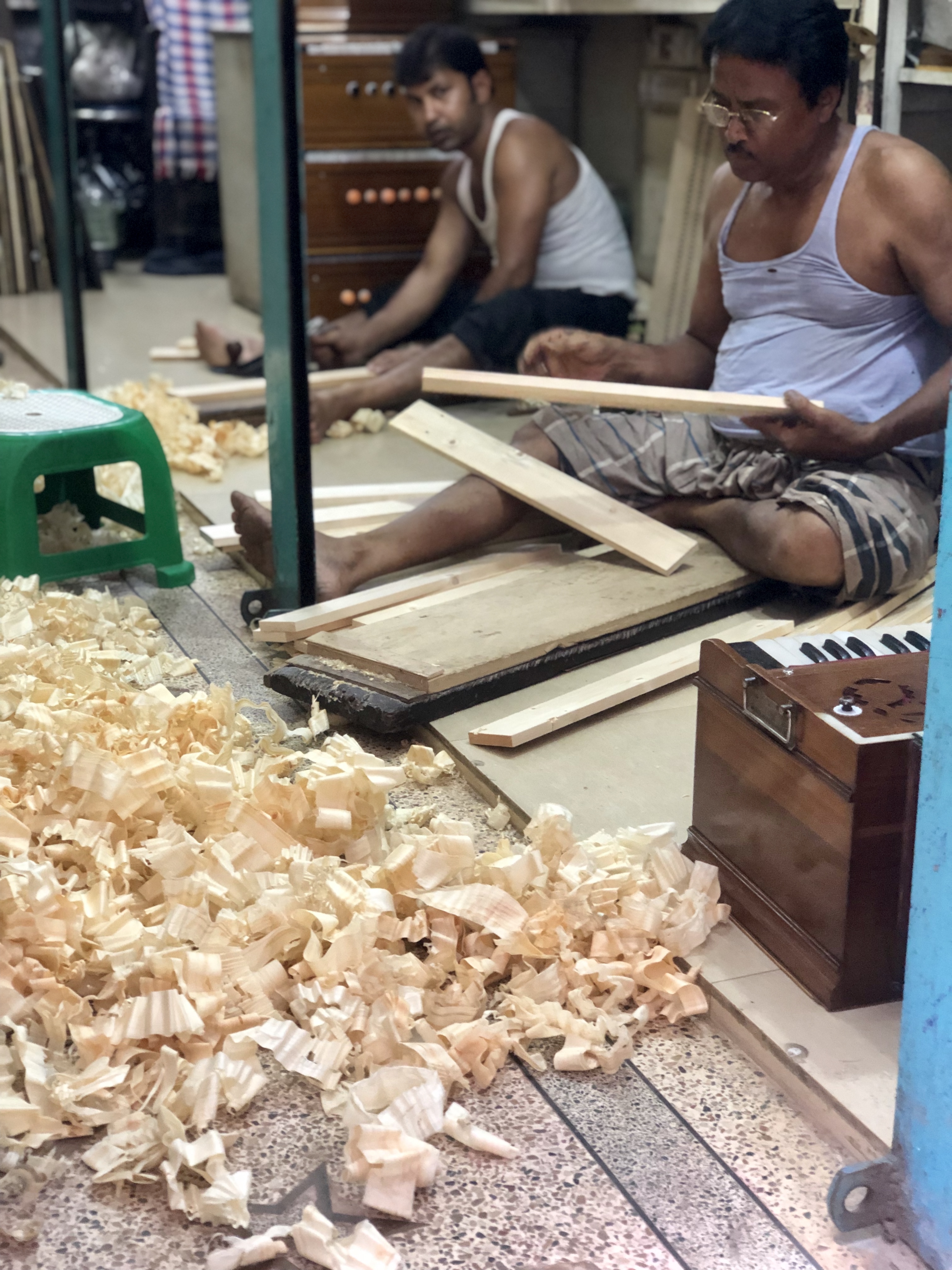
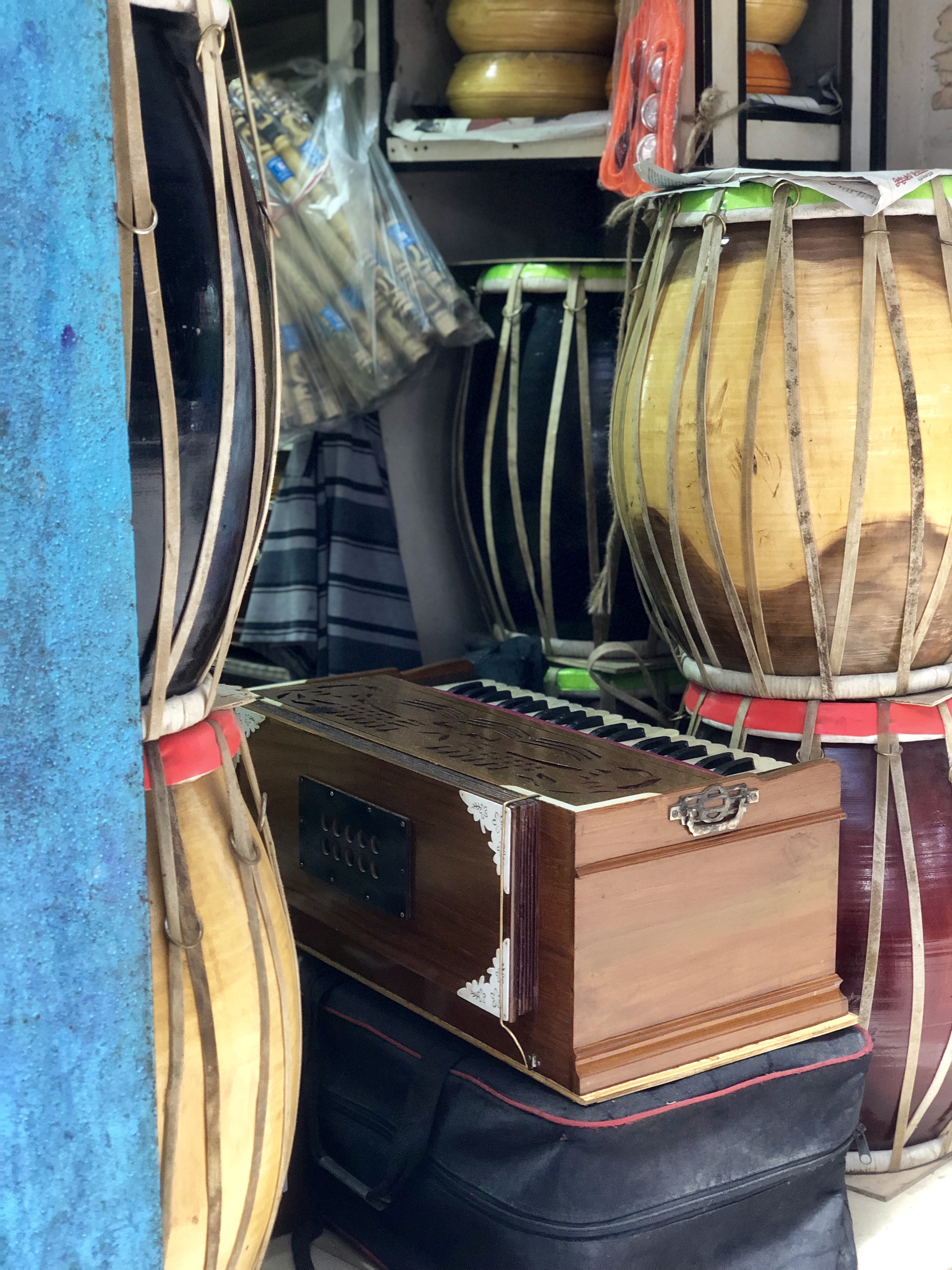
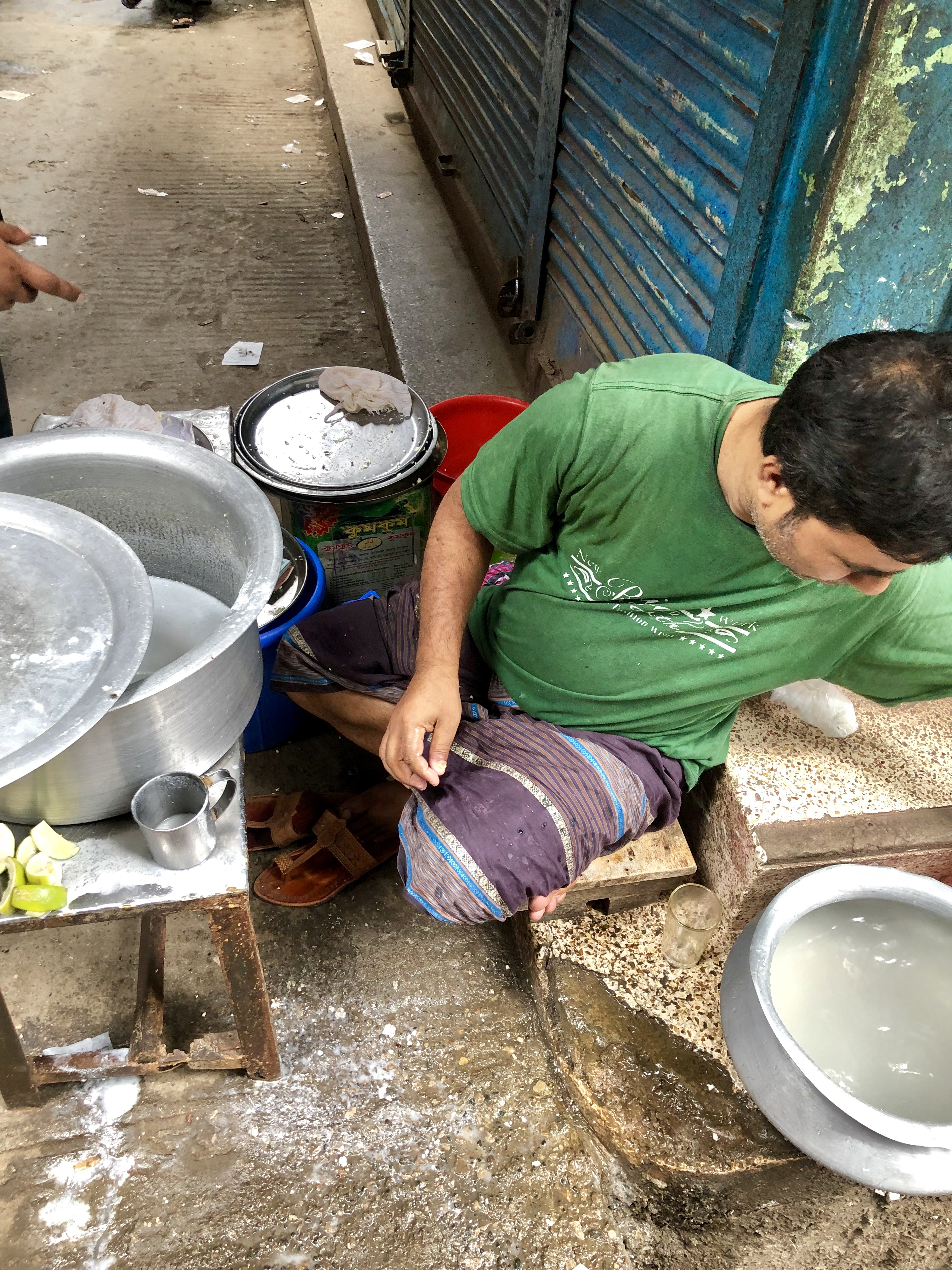
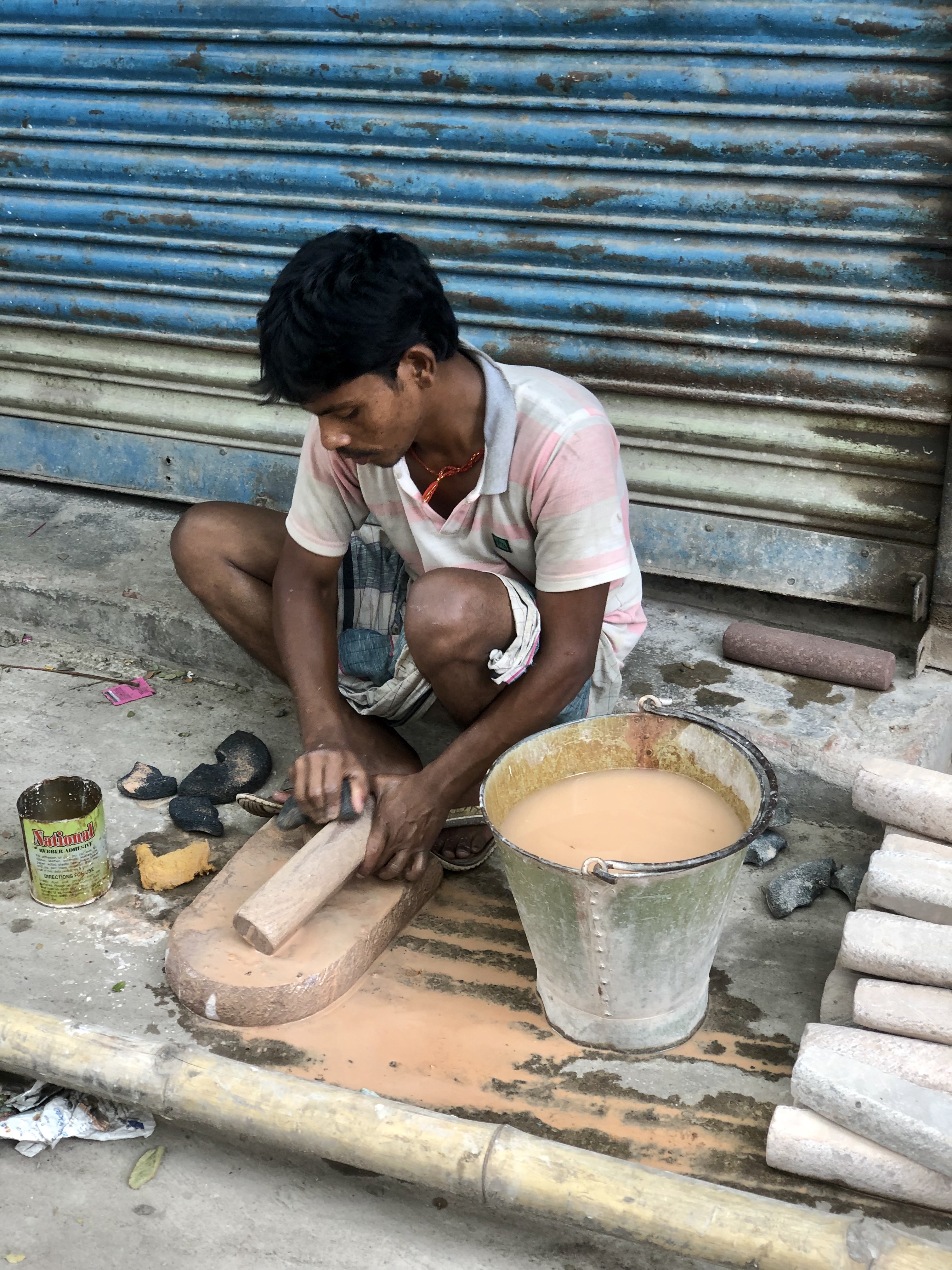

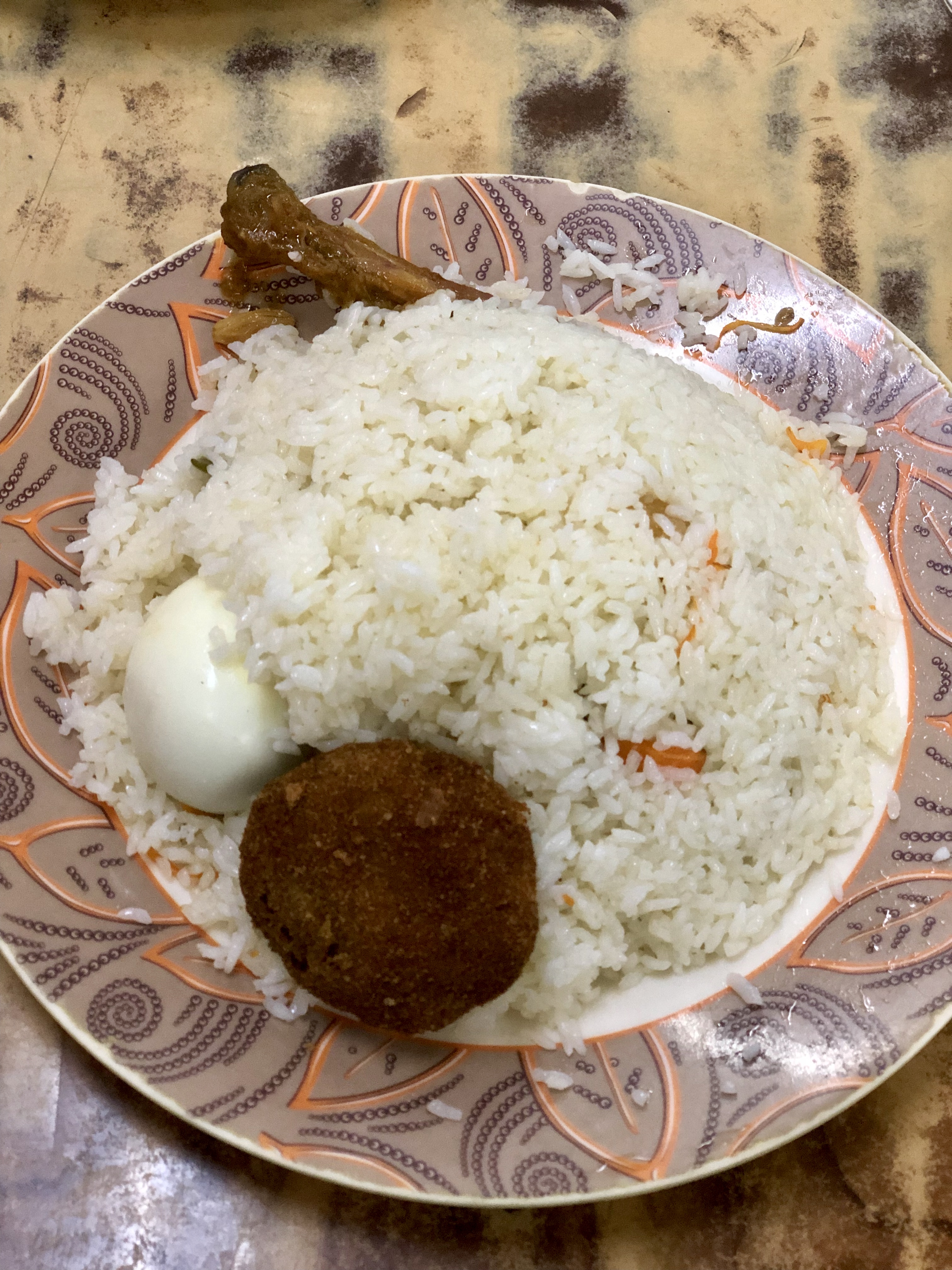
Due to the long drives, I have learned to read and conduct work in the car, especially when it is just the driver and myself. If my supervisor is with me, we are usually discussing the history of Bangladesh, sites
One thing I have found interesting and challenging to explain is the way our legal system works compared to that of Bangladesh. Often I am asked about how something works, or
Interviews:
Wednesday and Thursday were spent reviewing the information I had gathered the previous three days during my interviews. I re-read the notes from my interviews a few times while organizing it all, and the answers still resound with me.
I was able to interview the victim in the shelter (on Sunday). She was a teenager. She had already been a child bride. Her husband died, and while looking for work, a job was promised, but she was instead trafficked. Her hopes for her future? To find work, perhaps start her own business, and to help other victims and survivors.
Of course, people said that the victims and survivors should receive compensation for the money they have lost (many have to pay cash up front to travel to their destination for the job) and that convictions would bring justice as well.
However, the answer I heard more than anything was that the victims and survivors should receive decent and respectful treatment. That there should be more reintegration efforts to assist victims and survivors in finding meaningful work and being reintegrated back into the community, and that those working with victims and survivors should have specialized sensitivity training.
It was crushing to hear this simple answer. It seems like such an easy request; to treat another human being with decency and respect. But this was the answer I heard over, and over, and over again.
